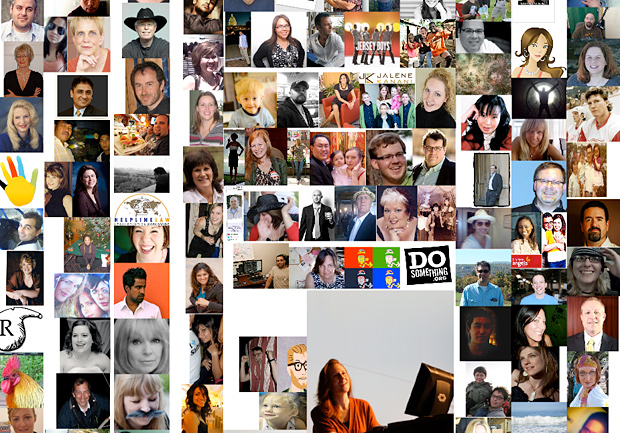 Get the 212 card Get the 212 card | |
|
innovation DAILY
Here we highlight selected innovation related articles from around the world on a daily basis. These articles related to innovation and funding for innovative companies, and best practices for innovation based economic development.
Arthur Rock on Venture-Capital Carried Interest
 In a recent interview, venture-capital pioneer Arthur
Rock discussed his early days in the venture-capital industry and
why he’s now investing in corporate governance and education issues. He
also waded into a contentious debate about venture-capital carried
interest.
In a recent interview, venture-capital pioneer Arthur
Rock discussed his early days in the venture-capital industry and
why he’s now investing in corporate governance and education issues. He
also waded into a contentious debate about venture-capital carried
interest.
Carried interest is the profits that venture capitalists make on
their start-up investments. For years, such profits have been taxed at
the rate of capital gains taxes, which are currently at 15%. But there’s
been a move afoot by legislators to tax carried interest at the rate of
ordinary income taxes, which can go as high as nearly 40%.
The National Venture Capital Association and many venture capitalists from firms such as Scale Venture Partners and Kleiner Perkins Caufield & Byers have opposed the potential change, which is currently awaiting a legislative vote in Washington D.C. The NVCA says it’s possible that a higher tax rate could hurt the risk-taking among venture capitalists, among other things.
Big Companies Offer Carrots to Start-Ups
 The auto industry is moving forward. Just look at the successful
public listing last week of the electric carmaker Tesla Motors,
Breakingviews says.
The auto industry is moving forward. Just look at the successful
public listing last week of the electric carmaker Tesla Motors,
Breakingviews says.
General Motors wants to innovate, too. It’s plowing $100 million into a venture capital fund to create new technologies and add to the bottom line. Corporate venture capital can be a creative way to outsource research and development. But the odds of spawning anything more look long.
Like other big companies, G.M. has carrots to entice start-ups. It can offer quick access to potential markets in everything from batteries to entertainment systems. And it has already invested in equipment like wind tunnels, which may be a nice perk for some new thinkers.
Popularity, Ego, and Influence - What Is the Influence Project?

In roughly 24 hours, nearly 6,000 people have registered to participate in an experiment we started called The Influence Project. It's been written about by TechCrunch, The Huffington Post, The New York Times, and a score of personal blogs. While it hasn’t taken off the way as quickly as the David After Dentist or Yosemitebear Mountain Giant Rainbow videos, it's off to a good enough start to bust our servers (briefly). But like anything that gains traction on the Web, the reactions have been mixed, ranging from the vitriolic to the pretty damn amusing.
One side effect of instant popularity is that most people are unaware of the evolution of this idea, and how the thing actually works. The Influence Project is a byproduct of a story I wrote in the May issue of Fast Company about the ad and marketing shop Mekanism. Mekanism told me they could make just about anything go viral. So I asked them to create a viral marketing campaign for Fast Company (they were not paid for this, but did it because it sounded like fun). In return, I would document the process and see if they could deliver. Mekanism came back with pitches ranging from a Twittering Business Jesus who responds to prayers from companies in distress, to a jingoistic campaign titled Fuck China (we passed on both, but you can still see the full brief). Instead, we settled on an idea called The Cover Project—so named because everyone who participates would get their photo in a story that might hit the cover of a fall Fast Company issue. We’ve changed the name since then, because the editorial story I wanted to pursue, the story that is constantly evolving and morphing, is the story of influence and influencers and how they are employed to both spread or kill ideas on the Internet. And voila—The Influence Project.
Small Business Has Role in Bridging 'Valley of Death'
 Promising drugs that could save lives face a “Valley of Death” when moving from basic research to clinical study and into the marketplace. That was the message and the focus of a national town hall held in Kansas City on Tuesday.
Promising drugs that could save lives face a “Valley of Death” when moving from basic research to clinical study and into the marketplace. That was the message and the focus of a national town hall held in Kansas City on Tuesday.
The New Role of Academia in Drug Discovery and Development Town Hall brought together an elite group of senior government officials and leading experts representing industry, academia, venture capital, technology centers and venture philanthropy. Speakers included Kathleen Sebelius, secretary of Health and Human Services; Francis Collins, director of the National Institutes of Health; Margaret Hamburg, commissioner for the Food and Drug Administration; and former House Majority Leader Richard Gephardt, now chairman of the Council for American Medical Innovation.
Sebelius told attendees that the future of the country and the region is tied to the success of bioscience. “We are at a pivotal moment in bioscience research in America,” Sebelius said.
She lauded the dedication to bioscience “seen here in the Heartland,” and said we can’t have a healthier country without a focus on long-term investment and a national commitment to science.
U2 VC: $120M to FB
 It's a beautiful day at Facebook.
Elevation partners has just injected
$120 million in venture capital, which will certainly help power-up
Zuckerberg's business ... but why did Bono's firm make this move?
It's a beautiful day at Facebook.
Elevation partners has just injected
$120 million in venture capital, which will certainly help power-up
Zuckerberg's business ... but why did Bono's firm make this move?
Back in November 2009 Elevation slid about $90 million over the negotiation table in exchange for 2.5 million shares in the world's most popular social networking Web site, and has seen that investment multiply by two and a half times in value. So perhaps it's not surprising that Elevation has just forked over another $120 million for a further five million shares at the moment--especially given the fact that the economy really seems to be recovering, and Facebook's success has been continuing onwards and upwards with more users joining every day. Who wouldn't want a big piece of one of the hottest Net properties in one of the hottest new Web-tech trends, social networking? And with your investment more than doubling in just eight months, Elevation's hope has to be that its $210 million will quickly turn into $1 billion. TechCrunch also notes that two of Elevation's founders--Bono and Roger MacNamee--already were personal investors in the social net, which may have added some extra sizzle to the business deals.
MSU Throwing in the Towel in Dubai

 When Michigan State University announced plans to expand into Dubai in 2007,
President Lou Anna K. Simon described the move as "transformational for a
university with an expanding 'world-grant' mission" (get it? --
"world-grant," not "land-grant"). She added that "other U.S.
institutions are likely to follow MSU’s path."
When Michigan State University announced plans to expand into Dubai in 2007,
President Lou Anna K. Simon described the move as "transformational for a
university with an expanding 'world-grant' mission" (get it? --
"world-grant," not "land-grant"). She added that "other U.S.
institutions are likely to follow MSU’s path."
Any followers would do well to learn from Michigan State’s combination of ambition, mistakes and misfortune. After just two years of operation, MSU Dubai has moved to immediately discontinue its undergraduate programs due to under-enrollment. That just 85 students are affected is testament to the extent of the institution’s struggle.
"This work that we tried to do, in which essentially students who were studying in Dubai had the same admissions standards, curriculum and course expectations as if they were in East Lansing, proved to be more difficult to pull off than we had imagined," Simon said in an interview Tuesday. "Part of that you can blame on the economic circumstances" -- MSU Dubai opened its doors in fall 2008 as a global recession closed in -- "part of it, you can look at ways in which the experiment began and some of the underlying assumptions."
Five Types of Innovation Snake Oil Consultants
 You’ve probably come across many self-claimed innovation experts in the past and it seems like anyone who has a different way of saying or doing something is calling themselves one. So many dumb things I’ve heard these people said about innovation. Some are snake oil consultants promising to help clients to innovate and to organize a company for innovation. There are some selling to clients how to be creative I’ve heard people promising clients that they can improve innovation success rate from 4% to 80%! 80% wow, if that’s the case, this consultancy should worth a few billions at least. Google would have bought them already!
You’ve probably come across many self-claimed innovation experts in the past and it seems like anyone who has a different way of saying or doing something is calling themselves one. So many dumb things I’ve heard these people said about innovation. Some are snake oil consultants promising to help clients to innovate and to organize a company for innovation. There are some selling to clients how to be creative I’ve heard people promising clients that they can improve innovation success rate from 4% to 80%! 80% wow, if that’s the case, this consultancy should worth a few billions at least. Google would have bought them already!
And then there’s talk about what type of people are best suited to be innovators. What kinds of archetype that represent the best quality of an innovator. This is so BS, innovators come in all sizes and shapes. I’ve come across many big ideas people who were trained in finance, economics, accountancy, legal, operations and engineering… and I’ve also met many working in the creative industries with zero ability to come up with big (medium or small) ideas although they dress creatively (that’s a matter of taste).
Huffington Post Says The Heck With Journo-Snobs And Launches Swimsuit Edition
 The Huffington Post is already getting shredded in the blogosphere for
stooping to a new low: A summer
swimsuit edition disguised as a feature about eco-chic.
The Huffington Post is already getting shredded in the blogosphere for
stooping to a new low: A summer
swimsuit edition disguised as a feature about eco-chic.
Given how hard it is to survive as an online news and opinion publisher, and given the sorry state of the traditional journalism world, you'd think more people would regard this as a perfectly reasonable way to support some more serious fare.
Especially because no one is actually forced to look at swimsuit editions. And especially because, although they protest vehemently to the contrary, this sort of thing is exactly what people actually want to read (clicks don't lie).
The Winners And Losers From The Rise Of Manufacturing Costs In China
 Two recent trends are making
it more expensive to make goods in China.
Two recent trends are making
it more expensive to make goods in China.
Wages, especially in the more developed southern part of the country, are going up as the country becomes more prosperous. Work in factories that pay less than a dollar-per-hour aren't as attractive relative to other opportunities as they once were, and international scrutiny of conditions in Foxconn's facilities in particular have forced further wage hikes.
Secondly, after years of keeping its currency cheap to promote exports, China is allowing the Yuan to appreciate, making it more expensive for foreign companies to do business there.
11 Reasons Customers Don’t Trust Your Web Site
 While it may be hip to say
otherwise, your small business needs a Web site. The same way you can’t
ignore your blog for social media, you can’t ignore your site in
lieu of a Twitter account. You may spend your afternoons engaging with
people on social sites, however it’s your site that users will
turn to for trusted information about what you do, how you do it, and
how they can get it. But before you go just throwing something
together, remember they’re looking for trusted information.
While it may be hip to say
otherwise, your small business needs a Web site. The same way you can’t
ignore your blog for social media, you can’t ignore your site in
lieu of a Twitter account. You may spend your afternoons engaging with
people on social sites, however it’s your site that users will
turn to for trusted information about what you do, how you do it, and
how they can get it. But before you go just throwing something
together, remember they’re looking for trusted information.
The Web site you create can’t help you if it doesn’t appear trustworthy to users. And that means more than just creating a professional design (though that helps). It means taking time to lay the foundation from the very beginning.
Here are 11 reasons customers won’t trust your Web site. It’s the what NOT to do.
Corporate Social Responsibility’s Seven Best Practices: Avoid Greenwashing Through Stakeholder Engagement
 In today’s competitive market, companies that incorporate social and
green policies can leave a lasting impression on the consumer. As Sofia
Ribeiro pointed out in her post Using Community Involvement as Part of Your Green
Marketing and CSR Strategy, a Cone Inc. survey revealed
that 83% of people will trust a company more if it is
socially/environmentally responsible. With this in mind, how do
companies go about communicating their best initiatives?
In today’s competitive market, companies that incorporate social and
green policies can leave a lasting impression on the consumer. As Sofia
Ribeiro pointed out in her post Using Community Involvement as Part of Your Green
Marketing and CSR Strategy, a Cone Inc. survey revealed
that 83% of people will trust a company more if it is
socially/environmentally responsible. With this in mind, how do
companies go about communicating their best initiatives?
Recently, Perry Goldschein took the podium at Sustainable Brands 2010 to talk about the seven best practices of corporate social responsibility (CSR). As the founding partner of SDialogue LLC, a strategic sustainability communications firm, Perry provided insights on how to engage your consumers and stakeholders. Follow this recap with CSR’s Seven Best Practices to learn how to put your organization’s best social and environmental practices in the spotlight:
5 Ways To Pay Your Employees When Your Startup Is Just Getting Started
 Call it the Catch-22 of startup life.
Call it the Catch-22 of startup life.
You need talented employees to help grow your business. But without enough cash flow, you can’t get the money to pay them.
“It’s the dilemma every early-stage company faces,” says Rosalind Resnick, CEO of Axxess Business Consulting in New York.
Certainly, you might be willing to work 24-7 with little financial reward for many months. But you can’t expect an employee to do the same.
So how can you compensate the top-level talent you need to boost your business?
The Trouble With Ann Arbor

 Why is Madison (Wisconsin) doing so much better than Ann Arbor
(Michigan)? Michigan Future looks at the differences between the
two college towns. Lou Glazer
explains why Ann Arbor must look to Portland (Oregon) for answers:
Why is Madison (Wisconsin) doing so much better than Ann Arbor
(Michigan)? Michigan Future looks at the differences between the
two college towns. Lou Glazer
explains why Ann Arbor must look to Portland (Oregon) for answers:
We use Madison as a comparison for both Ann Arbor and Lansing/East Lansing both because of the major research university and to take cold weather off the table. Lots of folks think Michigan can’t compete for talent because of the weather, don’t believe it. But in terms of development policy a better model is Portland, Oregon. They have developed the playbook for land use.
Lone whales shout to overcome noise
 Just like people in a bar or other noisy location, North American right whales increase the volume of their calls as environmental noise increases; and just like humans, at a certain point, it may become too costly to continue to shout, according to marine and acoustic scientists.
Just like people in a bar or other noisy location, North American right whales increase the volume of their calls as environmental noise increases; and just like humans, at a certain point, it may become too costly to continue to shout, according to marine and acoustic scientists.
“The impacts of increases in ocean noise from human activities are a concern for the conservation of marine animals like right whales,” said Susan Parks, assistant professor of acoustics and research associate, Applied Research Laboratory, Penn State. “The ability to change vocalizations to compensate for environmental noise is critical for successful communication in an increasingly noisy ocean.”
Right whales are large baleen whales that often approach close to shore. They may have been given the name because they were the right whales to hunt as they are rich in blubber, slow swimming and remain afloat after death. Consequently, whalers nearly hunted these whales to extinction. Currently right whales are monitored to determine the health and size of the population. The northern and southern right whales are on the endangered species list.
Reinventing yourself after a job loss

"I like the idea of being more in control of everything," said Beth Granger of Port Washington, who lost her job in a restructuring in April after 17 years with a large Long Island manufacturing company.
Granger recently visited the Bethpage office of the Service Corps of Retired Executives, a volunteer business advisory group, to explore the idea of partnering with someone to open a digital marketing agency, even while she continues to look for another job.
For the recovery to proceed smoothly, firms must stop hoarding cash
 IF THE private sector continues to save hard even as governments try to borrow less, the risks of a double-dip recession rise. A long period of high household saving seems assured in rich countries whose consumers lived off credit and have heavy debt burdens to show for it. But much of the recent increase in private-sector savings comes not from consumers but from businesses. Profits have been more than enough to cover corporate spending in many parts of the rich world, leaving an excess of funds for firms to squirrel away. A lot depends on whether this continues.
IF THE private sector continues to save hard even as governments try to borrow less, the risks of a double-dip recession rise. A long period of high household saving seems assured in rich countries whose consumers lived off credit and have heavy debt burdens to show for it. But much of the recent increase in private-sector savings comes not from consumers but from businesses. Profits have been more than enough to cover corporate spending in many parts of the rich world, leaving an excess of funds for firms to squirrel away. A lot depends on whether this continues.
If cautious firms pile up more savings, the prospects for recovery are poor. Economies will be stuck in the current—and odd—configuration where corporate surpluses fund government deficits. If firms loosen their purse-strings to hire workers and to invest, that will allow governments to scale back their borrowing.
Linked In With: a Writer Who Questions the Wisdom of Teaching With Technology
 Multimedia—dangerous!
Multimedia—dangerous!
Online research—depthless!
Classroom screens—dubious!
If you're looking for a contrarian take on technology, Nicholas Carr is your man. In 2003 the author touched off a debate about the role of computers in business with his article "IT Doesn't Matter." He caused another kerfuffle five years later with an Atlantic piece, "Is Google Making Us Stupid?"
Now the 51-year-old, Colorado-based writer has published a new book, The Shallows, which warns that the Internet is rewiring our brains and short-circuiting our ability to think. The Chronicle called Mr. Carr to get his opinion about what this means for teaching and research.
Q. The idea of neuroplasticity is central to your argument. What does this mean, and what does it have to do with how the Internet is changing our brains?
How to Start an Entrepreneurial Revolution in Six Months
 In the weeks since the Entrepreneurial
Revolution article appeared in HBR, government leaders, business
executives, entrepreneurs, NGO directors, heads of institutes,
university professors, and foundations have been asking me to help them
instigate a revolution. Here is my advice to all of you on how to get
started in just six months.
In the weeks since the Entrepreneurial
Revolution article appeared in HBR, government leaders, business
executives, entrepreneurs, NGO directors, heads of institutes,
university professors, and foundations have been asking me to help them
instigate a revolution. Here is my advice to all of you on how to get
started in just six months.
- Revolutions start local. Start the revolution in one locale and spread it from there. Every ecosystem has its own idiosyncrasies, and skepticism is prevalent, so start with quick wins that make sense in that specific location. And make quick correctable mistakes. Once you get on the right track in one locale, you can spread the revolution quickly. You don't have years to wait for measurable results before scaling up, just know you are on the right track.
- Revolutions need participants. The "shot heard round the world" will be a town-meeting-style, entrepreneurship stakeholder workshop to create excitement and commitment, and to learn. Convene representatives of banks, churches, universities, public schools, unions, cooperatives, entrepreneurs, the municipal and federal government, trade and industry associations, economic development organizations, some "foreign" diaspora resources, and the media. Meet with them individually to prepare them, and learn about the assets and liabilities of the local entrepreneurship ecosystem.
Deflated expectations: It takes more than a gust to harness wind energy
 The presence of strong gusts and flat, wide-open spaces would appear
tailor-made for the production of electricity from wind energy, yet the
reality of harvesting renewable energy is never that straightforward. As
Scientific American reported last week, Latin America is
beginning to tap into the wind as a source of clean (or at least not
fossil fuel-derived) energy. But further investigation into the
situation in Colombia reveals the difficulties inherent in building out a
wind-energy infrastructure.
The presence of strong gusts and flat, wide-open spaces would appear
tailor-made for the production of electricity from wind energy, yet the
reality of harvesting renewable energy is never that straightforward. As
Scientific American reported last week, Latin America is
beginning to tap into the wind as a source of clean (or at least not
fossil fuel-derived) energy. But further investigation into the
situation in Colombia reveals the difficulties inherent in building out a
wind-energy infrastructure.
Despite the successful 15-turbine Jepírachi Wind Project (pdf)
in the country's northern La Guajira Desert,
Empresas Públicas de Medellín (EPM), one of the country's largest
utilities, says it has no plans to expand Jepírachi at this time.
Whereas the project has been delivering electricity to Colombia's
national grid since 2004, EPM is finding that wind power is more
expensive to deliver than the hydropower that provides 70 percent of the
country's energy needs, EPM spokesman Luis Fernando Rodriguez said in
an e-mail to Scientific American translated from Spanish.

